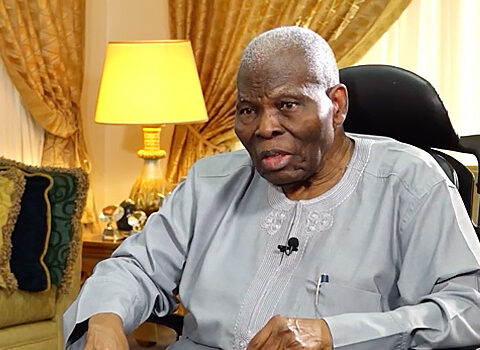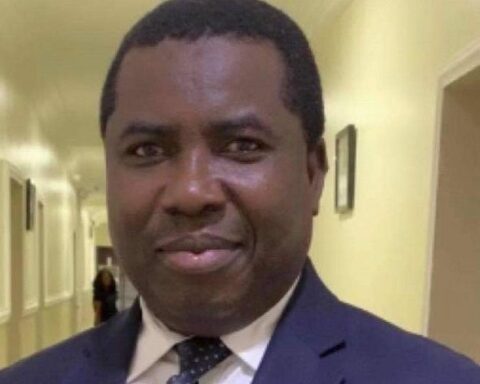By Dan Onwukwe
Last week must have been a heart-breaking moment for David Bernard and Victory Maduneme, co-pilot and cabin crew member of Air Peace, the largest airline in Nigeria and West African. The ‘bad news’ they just received made their hearts skipped. It was as if the world had collapsed on them. Their emotional state seemed every inch shredded. It’s like being hit by a truck. It was jaw-dropping. They were bewildered, shell-shocked, gobsmacked. It must be a serious matter. Yes, it is. On Sunday, July 13, 2025, an Air Peace aircraft, Boeing 737-524, with Registration number: 5N-BQQ that Bernard and Maduneme flew from Lagos to Port Harcourt international airport was involved in a runway excursion. All the passengers disembarked unhurt.
In aviation terms, an aircraft excursion is when the plane veers off or overshoots the runway during landing. It could be as a result of miscommunication, faulty gear, pilot’s error or potholes on runway. As required, in such incident, blood and urine samples of the flight crew – the captain, co-pilot and cabin crew member -are taken to determine what exactly went wrong. There was no hesitation on the part of the Air Peace crew in providing the samples so required to the Nigerian Safety Investigation Bureau, NSIB, formerly called Accident Investigation Bureau(AIB). The tests were reportedly conducted in a government hospital in Port Harcourt, not in a specialist hospital as required by established protocols.
That raises legitimate suspicion. Ordinarily, test results in a matter like runway excursion ought to be out in a matter of hours. Not days, not months. But it took NSIB officials about two weeks. And even after they did, the results were not communicated to Air Peace, the employer of the flight crew of July 13. That raises another poser surrounding the outcome of the investigation. NSIB preliminary report released last week came like a thunderbolt. It claimed that the toxicological test results indicated that co-pilot Bernard, and cabin crew member, Victory Maduneme, tested positive for alcohol and a hard drug suspected to be marijuana. The report was signed by NSIB’s Director, Public Affairs, Mrs Bimbo Oladeji.
Co-pilot Bernard and crew member, Maduneme have since debunked the report. For Maduneme, a re-confirmatory test she did at a licensed hospital approved by aviation authority, proved negative. This makes the NSIB report questionable. Before the NSIB report was made public last week, the Nigerian Civil Aviation Authority(NCAA) had cleared the duo of any wrongdoing. They have since resumed flying duties. Just last Saturday, Sept 13, NCAA again justified its decision to clear the co-pilot and crew member, reaffirming that its internal investigation and that of NSIB did not indict any of them.
As a responsible, responsive airline and a stickler for safety and transparency, the management of Air Peace did not waste time in sacking the pilot of the July 13 flight to Port Harcourt airport. His dismissal had absolutely nothing to do with any drug use. In the words of Air Peace, it was “for violating safety procedures and failure to adhere to Crew Resources Management(CRM) principles, and for disregarding standard ‘go-around’ procedures as advised by his co-pilot”. In aviation, a ‘go-around’(or missed approach) is a routine and safe procedure where a pilot decides not to complete a landing, either in final approach or after initiating the landing itself. It’s, therefore, timely and appropriate that Air Peace had to fire the pilot.
The decision speaks volumes of the utmost priority that Air Peace places on safety, transparency and compliance. But the pain of co-pilot, Bernard and cabin crew member, Maduneme, is far from healed. In an interview on ARISE TV last Friday, both vehemently denied any drug use as alleged in the NSIB report. Recounting his own side of story surrounding the airline’s incident at the Port Harcourt airport, Bernard said, tearfully, “I neither drink nor smoke…I was the pilot monitoring officer that day. It was a good weather and good visibility. Everything was going well and smoothly until 500 ft when the captain disconnected the autopilot to manual”.
He said he noticed that the pilot’s approach wasn’t stable. “I advised him, but he did not listen to me. He continued the approach. We crossed the runway at about 200ft. That’s the threshold. We came to land just after the middle of the runway”. Bernard also lamented what he described as the “reluctance of the pilot” to use the reverse thrust”. But he(Bernard)intervened just in time to bring the plane to a stop. That courageous move saved the lives of all the passengers onboard. It was a demonstration of a high level of professionalism. No surprise that Bernard has been reinstated into active flying duties with full approval from NCAA.
If he was involved in any alcohol or drug as NSIB report claimed, the authorities of NCAA wouldn’t have cleared him to resume flight duties. On her own account, with shock and tears welling up in her eyes, Maduneme faulted the NSIB report. She said it was a calculated attempt to smear the corporate image of the airline. She also narrated her experience at Kupa Aerospace clinic, Lagos that was licenced for that kind of test. Her pain was relieved when a re-confirmatory test showed that “everything came negative”. She has demanded an apology from NSIB and has threatened legal action if the agency fails to do so.
With the saga not over yet , it has thrown up some vital questions: Are there some unseen hands to undo Air Peace? Is it not possible that the test results handled by the investigators on the Air Peace crew may have been tampered with or compromised? Or is this all part of a spineless politics to get at the Chairman of Air Peace, Chief Allen Onyema? Is it a power game of some sort or envy against Onyema’s rising profile in the aviation industry? A former Minister of Aviation was reported recently of feeling very bitter that his failed attempt to float a non-existing national carrier in the name of ‘Air Nigeria’ was exposed by Onyema. The antigraft agency (EFCC) is still on the matter.
More curious questions: Why did NSIB not communicate the management of Air Peace over the incident at the Port Harcourt airport on July 13? Was it right to have used a government hospital to conduct a test of such magnitude against established protocols that such a serious a test be done in a specialised hospital? Many questions indeed begging for answers. Air Peace says, “till date, we have never received any official communication from NSIB on its findings two months after the incident happened, and after the testing of our crew for alcohol or any drug which took place in less than an hour of the incident”.
The Airline insists it conducts frequent alcohol and drug tests on its crew that is even stricter than the “8 hours before flight”, as provided in the regulations. The statement by the Director General, NSIB, Capt Alex Badeh on the matter is not only tardy, it also smacks of arrogance and grandstanding. Like someone who has a score to settle, Capt Badeh said last week, “we have heard them say it’s a smear campaign against the airline. But, I must point out that this is not our first preliminary report we have published. We have published countless. So, it’s a little surprising to suddenly hear that it’s a smear campaign against Air Peace”.
Taken as a whole, could this be the voice of Jacob but the hands of Esau? Whoever voice or hands it may be, NSIB needs reminding of its primary responsibilities in line Section 29, of NSIB 2006 Act, one of Which includes to conduct a “thorough, no-blame investigation into accidents and serious incidents in the aviation, maritime, rail and road sectors to determine their causes, as well as provide safety recommendations. One key word in the Act is, “without apportioning blame”. Has NSIB done that, or is it searching for a smoking gun against Air Peace?
Follow us on all social media platforms @dailyquery for news and analyses around the globe.



























